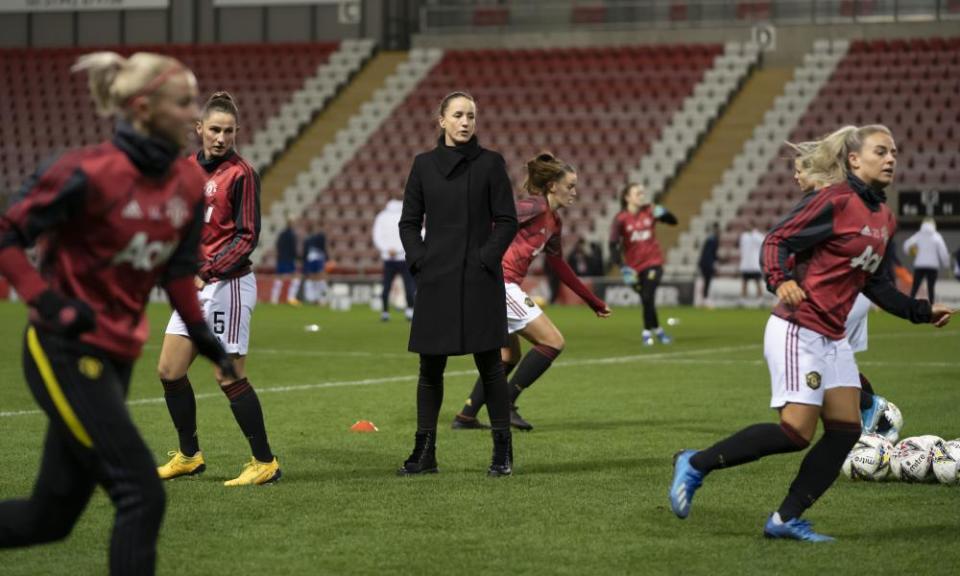Manchester United's Casey Stoney: 'We have some catching up to do in WSL'

The Manchester United Women head coach, Casey Stoney, has admitted her team have some catching up to do if they are to improve on their fourth-place finish from last season.
The teams ahead of United in the 2019-20 season – Chelsea, Manchester City and Arsenal – have invested heavily during the summer. United’s opponents on Sunday, Chelsea, are the champions, having been awarded the title on points per game when the season was curtailed, and as a sign of their ambition they have just added the world’s most expensive female player to their squad in Pernille Harder. “I have actually played against her, I know how good she is,” Stoney said.
Related: Women's transfer window summer 2020 – all deals from Europe's top five leagues
“Chelsea were already a strong team – they are champions for a reason – but everyone seems to be strengthening this season,” she added. “It’s looking like it’s going to be the best WSL season ever, certainly the most competitive. We have only been around for three years so we still have catching up to do, but I’m happy with my squad and I’m sure we can keep pushing on. We couldn’t have asked for a tougher opener but we are all just keen to get out on the pitch and start playing again. You always feel like that before the first game of the season but this year especially so.”
Stoney also said she believed it would be a long time before the women’s game approaches pay parity with the men’s, despite the Football Association’s revelation that female internationals are on the same appearance money as their male counterparts.
Stoney approves of that development but does not see it as a sign that women’s pay will one day match men’s. “To be honest I don’t think it should,” she said. “I’m a realist, it’s probably best for me not to comment too much on this subject, but I think we will only get paid the same when we bring in the same sort of revenue as the men’s game. We need to work on our marketing and we need to become more visible; we have to get more people in to our games before we can start talking about equal pay.
“If you ask me whether I can see a day when female footballers earn as much as the highest-paid men then the answer is no, I can’t. Top male footballers get paid in the hundreds of thousands per week, and though our game is making great strides and moving forward all the time, the sort of crowds we get at the moment just won’t support that. I’ve been in the game a long time and that’s very much a personal view, but I believe it is a realistic one.”

 Yahoo Sport
Yahoo Sport 





































